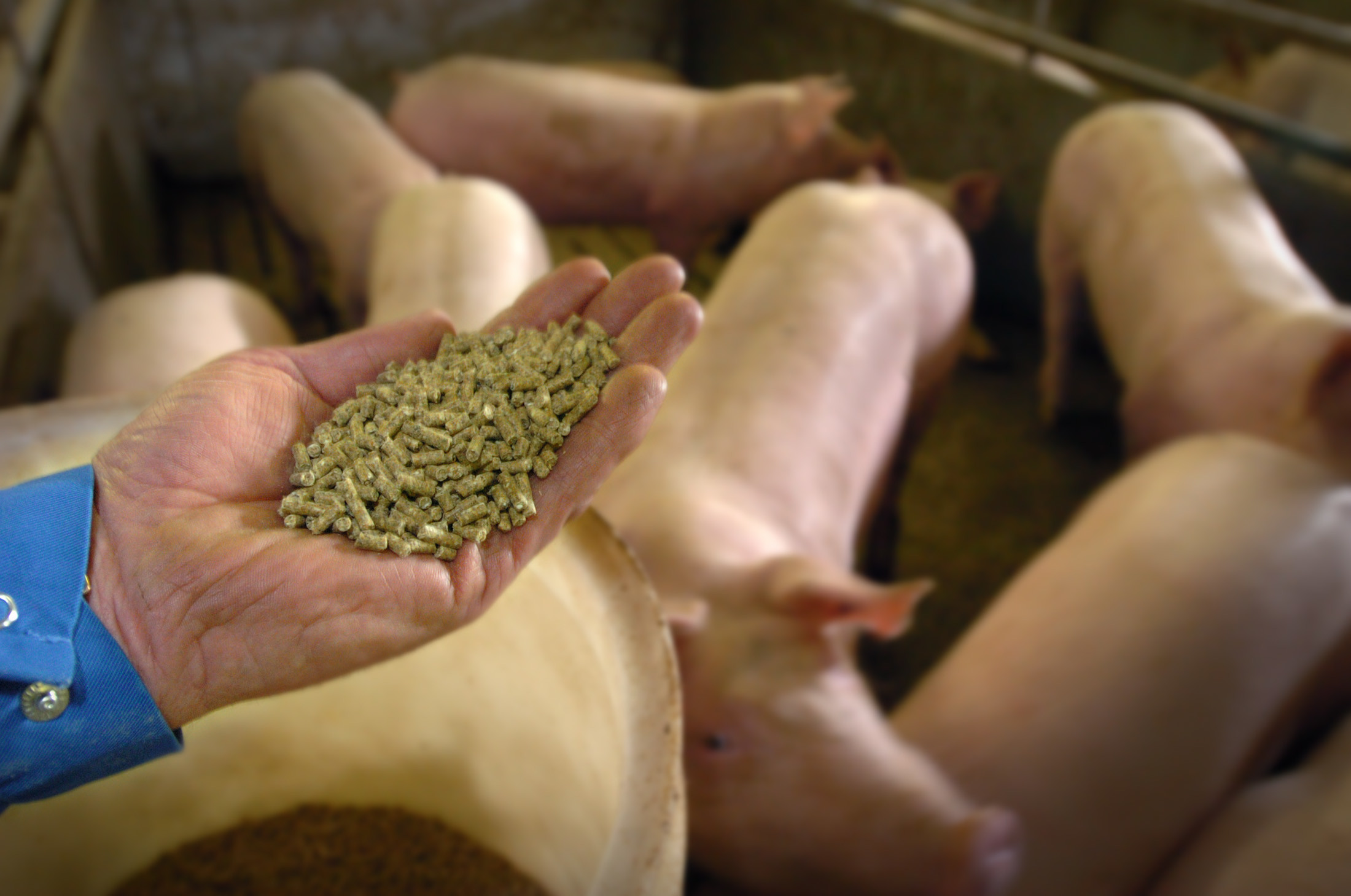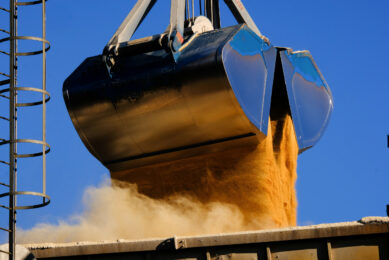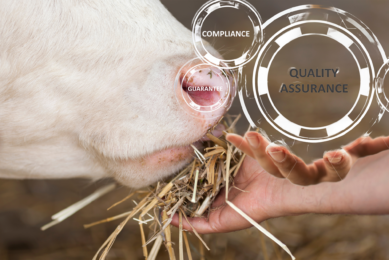Feed fraud: How do you deal with it?

‘If it looks too good to be true, it probably is’, says GMP+ International. This organisation kicks off feed fraud awareness campaign.
Doubts about one’s own judgement, internal struggles, reluctance to ‘betray’ other businesses, and distrust towards government watchdogs: for individual companies, combatting feed fraud is no easy task. That doesn’t deter GMP+ International, owner of the world’s largest feed safety scheme, to work hard to increase awareness around feed fraud. At a recent training in the Netherlands, it provided companies with tools on how to deal with this thorny and delicate issue.
Huge financial losses
There are plenty of reasons for businesses to take the issue of feed fraud seriously. Its negative impact can hardly be overstated. Feed fraud doesn’t just affect the company committing fraud, but also its suppliers and clients. And if the media jumps on it, public trust in the feed sector will take a dive as well. Research has shown that once a direct supplier has become a victim of feed fraud, the chance that your own business will be affected by it, increases significantly (Van Ruth, Huisman, Luning: Trends in Food Science & Technology, 67, 2017). This can result in huge financial losses: a fraud incident may cost a company anywhere from 2% to 15% of his annual turnover (Consumer Product Fraud and Deterrence, Grocery Manufacturers Association, 2010).
Fraud or honest mistake?
But if individual companies are to fight feed fraud, they must first be able to recognise it. This was one of the main subjects discussed at a recent feed fraud training of GMP+ International in Renkum, the Netherlands. The 2-day training, led by Mrs Gerrianne Jansen, was initiated by GMP+ International and supported by the Federatie Nederlandse Diervoederketen (Federation Dutch Feed Chain).
“Sometimes you encounter a product that’s not as it should be,” said one participant during a round-table discussion at the training, attended by a dozen companies from the feed producing industry. “But that doesn’t immediately mean it’s fraud. It could be a mistake as well. But how do you differentiate between the 2?” Fraud is generally defined as intentional deception for monetary gain. But both characteristics – the intention as well as the goal – are hard to judge for people on the outside. What they can see though, is what’s on the surface: the price of the product, the quality, the delivery process. And these provide companies with signs, said Mr Ymte Yntema, Quality Assurance manager at agricultural cooperative Agrifirm, during his presentation. “Does the product look the way it should? Did it originate from a trusted supplier? Was it delivered by the same company as promised? Does the product have the right price? A price that’s too low should give companies pause,” he said. “Never forget: golden eggs don’t exist. Ask yourself why you would be the ‘lucky one’ to be offered that discounted price. If it looks too good to be true, it probably is.” Although easy in theory, the practice can be more harsh. Being tough on prices as the quality manager can lead to struggles with the purchasing department that may be, understandably, keen on bargains. That’s why it is important for fraud policies to be broadly embedded in the organisation. Internal trainings and fact sheets are tools to raise fraud awareness company-wide, from management and finance to the people on the plant floor.
Notifying the government
Companies are most vulnerable to fraud when dealing with new or non-regular transport companies and suppliers. “Not everything is measurable,” said Mr Yntema. “But your gut feeling is important too. So when in doubt, double-check the delivery papers, check the product names. Don’t accept the delivery if it’s not according to what’s in the contract. Once you sign off on a fraudulent delivery, it becomes your problem.” Attendees at the training were encouraged to visit their suppliers every once in a while. This enables them to ask questions and to form an opinion of their quality assurance.
Hesitant to be the whistleblower
If companies encounter or suspect fraud related to feed safety, they should notify government watchdogs and GMP+ International. They are able to conduct independent research and, if necessary, take the necessary pre-emptive or reactive measures. GMP+ International’s Early Warning System plays an important role in preventing incidents from spreading further in the chain. Yet putting in a call with third parties – especially the government – is frowned upon in a sector in which a ‘mind your own business’ attitude has historically been prevalent. As one attendee at the training admits: “In our sector, we are hesitant to be the whistleblower. We prefer to keep things indoors. If we have been cheated, we don’t like to go public with that.” The fight against feed fraud is hampered by the level of distrust between a somewhat closed sector and government watchdogs that are seen by some in the industry as too rigorous. GMP+ International recognised this by inviting Mrs Anne Mariët, senior inspector at the Dutch NVWA-IOD, to speak at the training as well. Mrs Mariët emphasised the importance for the sector as a whole to report on incidents, and assured attendees that notifications are handled with the utmost care and confidentiality. Attendees were impressed with the extensive and thorough research of the NVWA-IOD that precedes an actual investigation or eventual prosecution.
Awareness
Fighting feed fraud will never be easy. GMP+ International did not organise the training expecting (or even aiming) to solve all the difficult issues at hand. But it all starts with awareness. And in that, the training was successful, according to attendees. “No easy answers, but definitely a lot to think about,” said Mr Jaap Hengstmengel of feed & food testing laboratory Eurofins. “No single quality or safety system is waterproof,” according to Mrs Audrey Rensen-van Lijden, quality manager at Cefetra. “There is always the possibility to cheat on the system. As a sector, we need to be aware of this and take measures to detect and report wrongdoing. In the end, that’s in the best interest of us all.” “A certificate means little without a matching mentality,” adds Mrs Huguette Tychon of HTP Advies. “Of course it’s hard to differentiate between fraud and an honest mistake, but if you start with being aware, there is a lot gained already. That’s our job: be aware and critical in every phase.”
Continue to raise awareness
Mrs Gerrianne Jansen, who led the 2-day training, was pleased with the attendees’ involvement in all discussions, especially considering the fact that these companies are each other’s competitors. “Openness asks for courage,” she said. Mrs Jansen is of the opinion that the training succeeded in its goal of creating awareness. “That’s a huge step, but challenges remain,” she addresses. ‘The biggest lesson of this training is that we cannot beat fraud just with lists, controls or procedures. Feelings play an important role as well. How do we deal with that?”
Although anti-fraud measures are not explicitly included in the GMP+ Feed Safety Assurance scheme, GMP+ International will continue raising awareness around the topic of feed fraud. “Our scheme primarily ensures the safe production of feed throughout the chain,” says Johan den Hartog, Managing Director at GMP+ International. “Its chain approach acts as a bulwark against the spreading of contaminations and other incidents throughout the chain. In the years ahead, we will keep facilitating debate and sharing knowledge with stakeholders about the issue of feed fraud. If we, together with our certified companies, can keep this open and honest dialogue going, I strongly believe we can reduce both the occurrence and the impact of feed fraud.”











